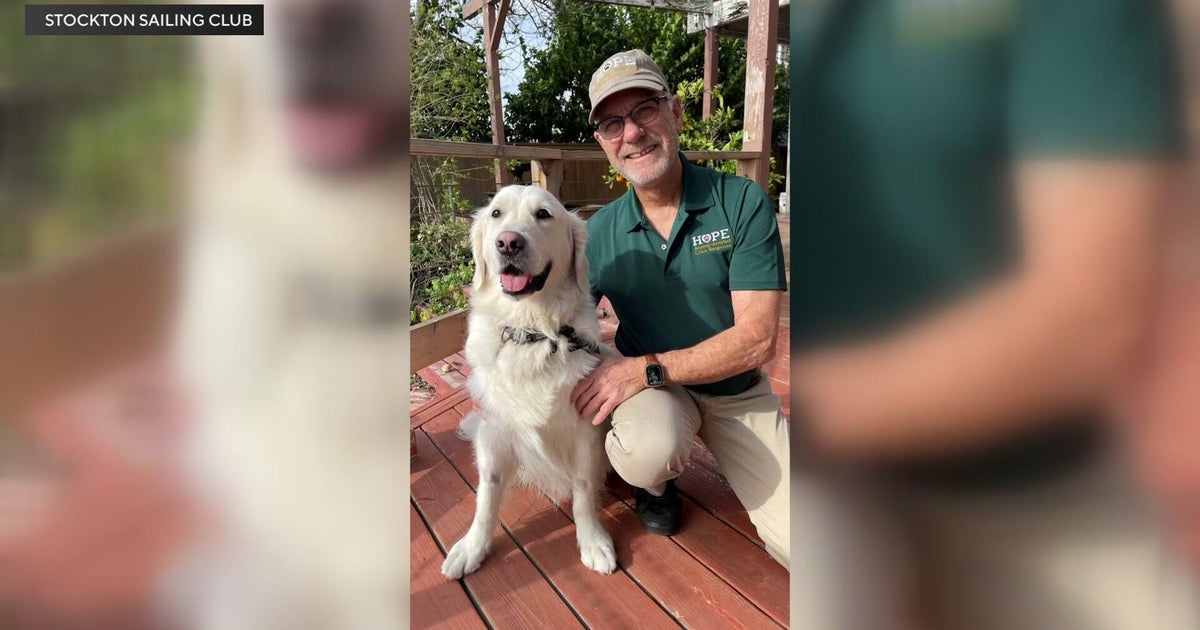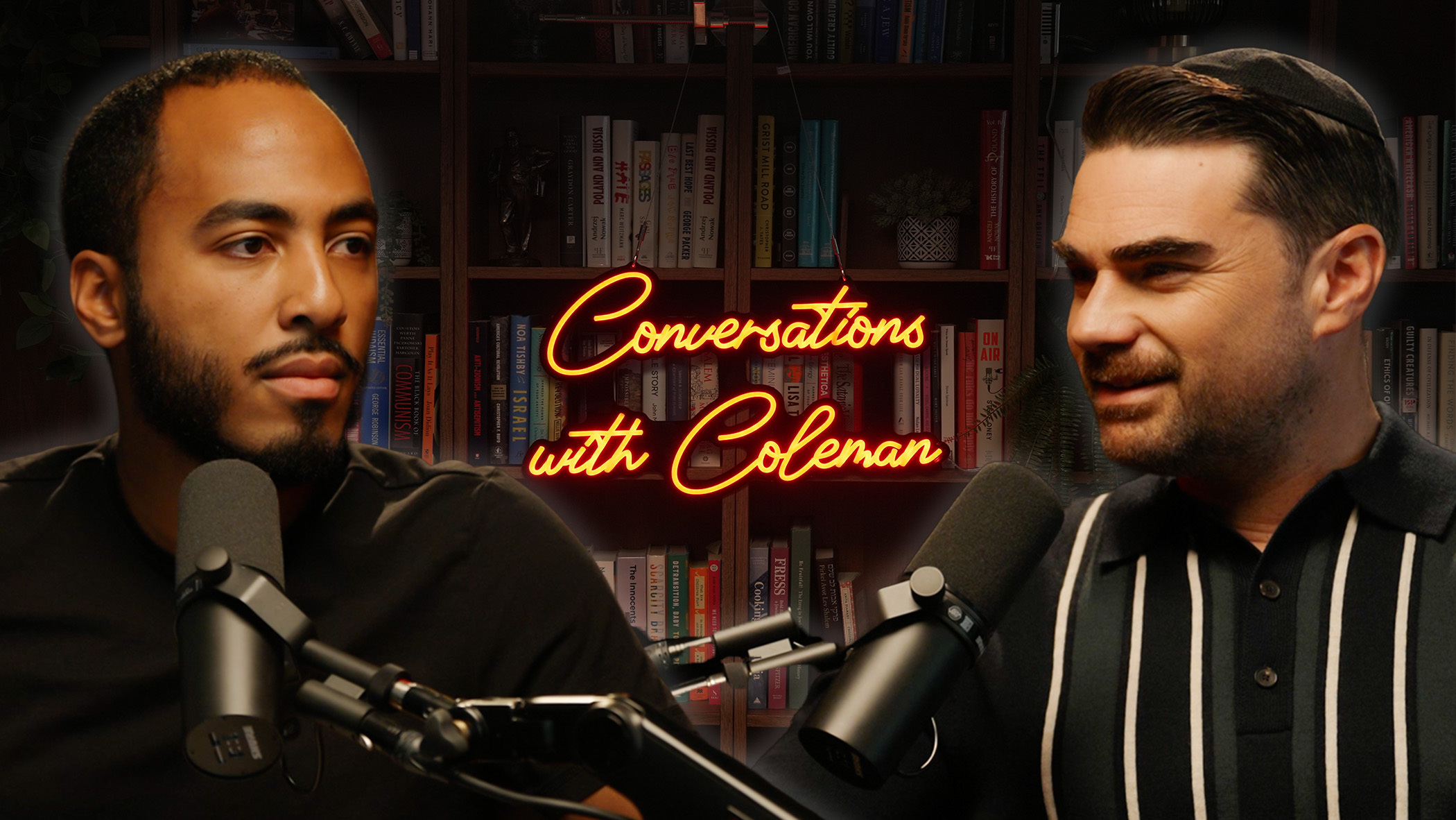Transcript: Sen. Ben Sasse on "Face the Nation," October 14, 2018
The following is a transcript of the interview with Republican Sen. Ben Sasse of Nebraska that aired Sunday, Oct. 14, 2018, on "Face the Nation."
JOHN DICKERSON: And we're back with Nebraska Republican Senator Ben Sasse. He's the author of a new book, "Them: Why We Hate Each Other — and How To Heal." Welcome, Senator.
SENATOR BEN SASSE: Thanks.
JOHN DICKERSON: So you say politics- this isn't about politics.
SEN. SASSE: It's not.
JOHN DICKERSON: But you're a politician.
SEN. SASSE: It's one of my callings. I'm also a dad and a neighbor and a Husker football addict, so.
JOHN DICKERSON: Why do- Why is it not about politics because when people think of what's tearing this country apart, politics is often the culprit.
SEN. BEN SASSE: There's a lot that's going on that's acute the last two years, but I think what we're really struggling with is decades in the coming. We're living through a digital revolution which is undermining place. I think the biggest problem in America right now is loneliness. And the good news is it's fixable, but it requires friendship. It requires more attention to place and family and shared vocation and work and neighborhood and worshipping communities.
JOHN DICKERSON: Help people understand what you mean by place.
SEN. BEN SASSE: Yeah. So you know where you live, is where you actually love and communities of love are the center of what really keeps people happy. There's a ton of literature now that shows we're the richest people in the history of humanity. And yet we're some of the most dissatisfied people in the history humanity. How do you make sense of that? And it didn't start two years ago. It starts because the digital revolution is really undermining that sense of local community and neighborhood.
JOHN DICKERSON: Because we're all just looking into our phones and we're by ourselves and then suddenly the sun's gone down and the day's over.
SEN. SASSE: That's a huge part of it. It turns out if you go from 200 to 500 social media friends or 500 to 1000. You don't get happier. But if you know the neighbor who lives two doors away from you, statistically you're more likely to be happy. We need to attend to those kind of things. It's a big deal.
JOHN DICKERSON: I want to get to solutions in a minute, but let's stick with the diagnosis for a moment. You are in fact able to make this case because you're a politician and so what I want to ask you about is the power of example in politics. There is no more famous person probably in America than the president.
SEN. SASSE: True.
JOHN DICKERSON: How is it not about politics if you have been very critical of this president saying he is driving some of these divisions. If these divisions- wouldn't it be very powerful if somebody in a public role like the president or senators, behaved and modeled the behavior you're talking about in this book that you should see at church or at the little league ball field.
SEN. SASSE: Sure. I think that's true. I mean the president and I wrestle on a whole bunch of issues. I- there are things we agree on, things we disagree on. But I don't think most of what Americans are wrestling with is a problem that's two years old. I think we've had a halving of friendship in America in the last 27 years. It's a stunning thing. You know nomadic tribes, agrarian history, industrial economics- people have always known their neighbors and known their co-workers. Decreasingly we don't know those things. We've gone from three and a half friends per American twenty seven years ago to about one point eight friends today. President Trump can't fix this. He didn't cause this. Politics can't fix this. Politics didn't cause this, but it's true that our political tribalism is filling that vacuum, that loneliness that's coming from all these other institutions. We have a decline of the nuclear family structure a lot the last 25 years and politics is a place people look to try to find meaning in the absence of these other communities that actually can make you happy.
JOHN DICKERSON: That's right. That's why I wondered if that's where people are going. People are addicted to what they're seeing on the news and we all experience that. Those of us who report or live in this world. Wouldn't it be- if you had examples, for example after this Kavanaugh fight if a Democrat had said, "You know I understand what my Republican colleague was- how passionate they got in defense of this person who was wrongly accused." Or if a Republican had said - instead of calling them evil, had taught people through the power of their example- since everybody's watching anyway- taught people through the power of their example of what it looks like to forgive the other side? We just don't see that.
SEN. SASSE: Yeah I- you're right. I mean the Senate should be an institution of 100 people who get sent from their communities- where they really are from and want to return to. And they go and have to build relationships and build a temporary community in the Senate of people who actually listen to one another. We don't do that very much right now because cable TV news has swallowed the Senate whole. Right now, we live this sort of frenzied media circus- that's not to beat up on the media, that's to beat up on the Senate as a place that people are more thinking about those distant tribes and the things we're screaming at each other against, rather than the things we should be for together. You should be for the place where you're from, the neighborhood in the city or the small town farming community where I'm from. But when you're temporarily thrown together in a new community the Senate should be a place that actually does some empathy and we're pretty crappy at that right now.
JOHN DICKERSON: Yeah. Well you'll have a chance to talk about this on the other side of the commercial. We'll do solutions. So we'll be back in just a moment with more from Senator Sasse.
*COMMERCIAL BREAK*
JOHN DICKERSON: And we're back with Senator Ben Sasse. So let's focus a little bit on the solutions. People know that- that we are at this pitched moment. So what do we do to fix it?
SEN. SASSE: Well one of the things we have to do is rediscover plural vocations, right? Work is statistically one of the most significant drivers of whether or not people are happy. And part of that's because we like to do stuff together. We like to have shared projects. I was born in the 1970s average duration at a firm was two and a half decades for a primary breadwinner. Average duration at a firm today for an American is four point two years and getting shorter.
JOHN DICKERSON: So what does that mean? Everybody knows what looking for work looks like. But what does that mean in terms of policy change even at the very local level?
SEN. SASSE: Yes, so I- I think most of this is going to be about recognizing that when you're 35 and 40 and 45 and 50, you're going to get disintermediated out of, not just your job, but probably your firm in your industry. We've never prepared to become a people that are lifelong learners. That has huge policy implications. I don't think politics are the main thing. I don't think they're the first thing, but obviously rethinking job retraining for the Age of Disruption. McKinsey, a company that I used to work for, says that 50 percent of Americans are going to be primarily freelancers in three years. We're not at all prepared for that.
JOHN DICKERSON: But--
SEN. SASSE: It has huge downstream implications for shared work together.
JOHN DICKERSON: But in this is where politics gets in it too, because you have a politician saying your job is not going away. I'm going to protect it. You're not going to have to re-learn. And - and so that comes back- brings me back to politics again sending the wrong messages from what you want to say.
SEN. SASSE: Yeah, that's just not true, right. So, so much of what we fight about in Washington is right versus left and a lot more of our policy should be past versus future. There aren't going to be lifelong jobs anymore and we shouldn't be lying to the American people about it. We should be thinking about what does it look like to help people get back to work, back to meaningful employment, back to shared labor with their neighbors when they're 35 and 40 and 45. We can't say, "I politician am going to protect your jobs forever." Because it's not true.
JOHN DICKERSON: So we have about 30 seconds-- what can I do, I'm at home watching this, what can I do to just break out of this cycle?
SEN. SASSE: One of the things is we're going to have to develop habits for the technological age that get back to an awareness of embodied flesh and blood neighbors actually matter a lot. There's a whole bunch of tech addictions. We all have to our smartphones. We know it's a problem when it's our kids- I have 14 and 17-year-old daughters. But it turns out we the adults are also addicted to technology that helps us flee the place where we're actually called to live and love our neighbor.
JOHN DICKERSON: All right Senator Sasse, thank you so much for being here.
SEN SASSE: Thanks for having me.
JOHN DICKERSON: Break-Break away from that technology, but stay with us until the show's over. We'll be right back.



